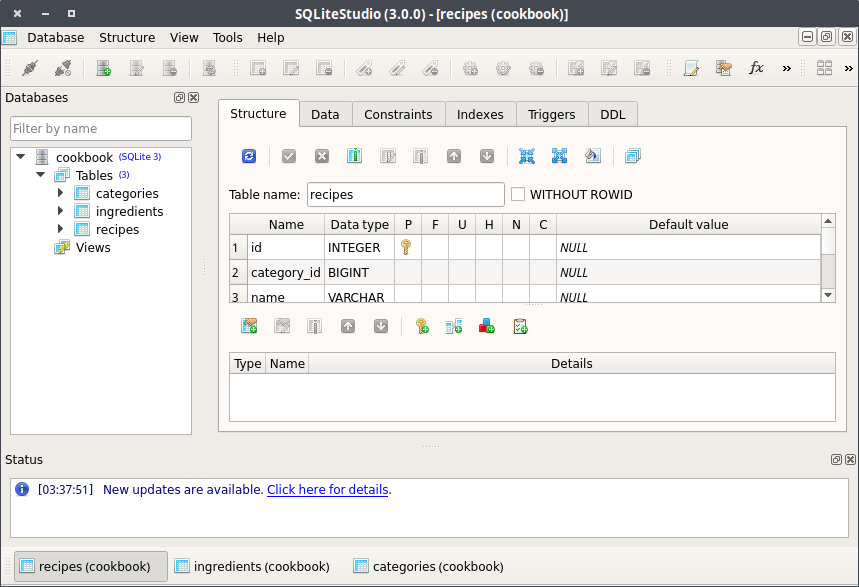
In a DELETE trigger, only OLD.col_name can be used there is no new row.
#Db browser for sqlite trigger update

If neither is specified, FOR EACH STATEMENT is the default.Ī Boolean expression that determines whether the trigger function will actually be executed.Īction for the trigger, it is the sql statement. Specifies whether the trigger procedure should be fired once for every row affected by the trigger event, or just once per SQL statement. The name of the table or view the trigger is for. One of the INSERT, UPDATE, DELETE that will fire the trigger. A constraint trigger can only be specified as AFTER. The name cannot be schema-qualified - the trigger inherits the schema of its table.ĭetermines whether the function is called before, after, or instead of the event. A trigger must be distinct from the name of any other trigger for the same table. Triggers are database operations that are automatically performed when a specified database event occurs. The CREATE TRIGGER statement is used to add triggers to the database schema. The statement CREATE TRIGGER creates a new trigger in SQLite. an insert, update or delete) occurs for the table/views. It supports the declaration of local variables, statements to control the flow of the procedure, assignment of expression results to variables, and error handling.Ī trigger is a named database object that is associated with a table, and it activates when a particular event (e.g.

It supports constructs that are common to most programming languages. Implementation of SQL triggers is based on the SQL standard. All rules run on the server before the result returns.
#Db browser for sqlite trigger code
Because the database stores triggers, you do not have to code the trigger actions into each database application.

Generate a unique value for a newly-inserted row in a different file.SQLite Trigger : Example DELETE using INSTEAD OF SQLite Trigger : Example UPDATE using INSTEAD OF SQLite Trigger : Example INSERT using INSTEAD OF Sample database, table, table structure, table records Triggers are useful for tasks such as enforcing business rules, validating input data, and keeping an audit trail. A trigger is an event-driven action that is run automatically when a specified change operation ( INSERT, UPDATE, and DELETE statement) is performed on a specified table.


 0 kommentar(er)
0 kommentar(er)
